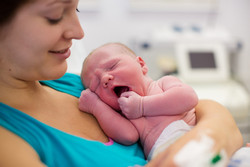A new code for childbirth options
There has been an increase in medicalisation of birth in recent years, particularly for caesarean sections which have been on the rise. This, combined with excessive interventions during labour, is what propelled the study for alternatives. CODEONBIRTH (An intercultural and ethical code on birth. A dialogue between institutional directives and women's needs) is an EU-funded project that focused on out-of-hospital childbirth (homebirth and maternity home) in three European countries. The overarching goal of the work was to create a dialogue between the demands and expectations of women and the functions of the medical system. The study analysed official medical, obstetrical and political discourses, compared and contrasted birth policies and practices on out-of-hospital birth, and explored the experiences and perspectives of midwives and women on giving birth at home or in a maternity home. In order to achieve these, the work included a review of World Health Organization documents and case studies on maternity homes and home birth services in Italy, Spain and the Netherlands. It also conducted in-depth interviews in the three countries with women who have given birth at home and pregnant women who prefer to give birth in a hospital. The 81 participants included health experts, midwives, and gynaecologists as well. Results indicated that respect was a term used as a main argument to the various approaches to the body, health and reproduction. A gap was discovered in the dialogue between midwives, women who gave birth at home and health care professionals. Women at low risk perceive the hospital as not being the safest place to give birth. This is due to the volume of unnecessary interventions and a potentially depersonalised and disrespectful environment. Main findings indicate that taking midwives and women’s experiences with out-of-hospital births can help promote a more physiological and respectful approach to the birthing process overall, including in hospital. This would entail re-thinking childbirth policies and practices by putting the needs of women and their babies first. This study can potentially increase social awareness of the risks and benefits associated with the different models of birth and promote communication between institutions and citizens.







